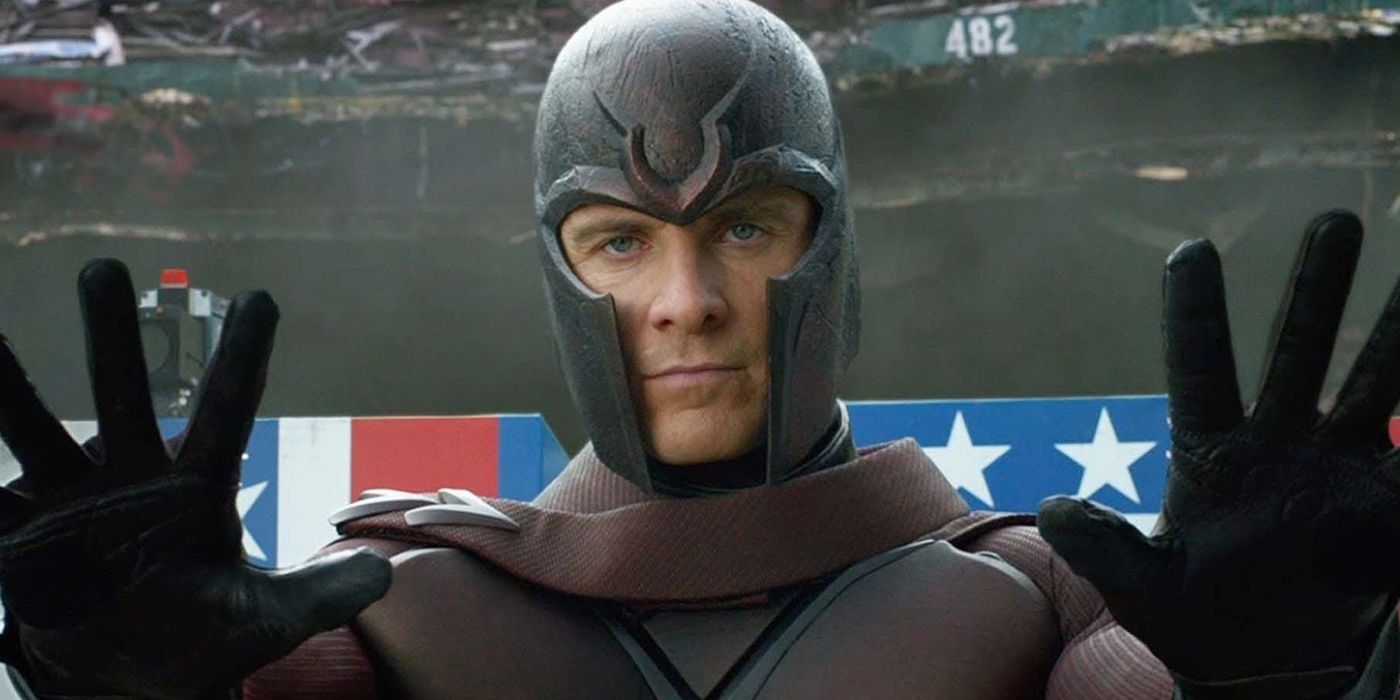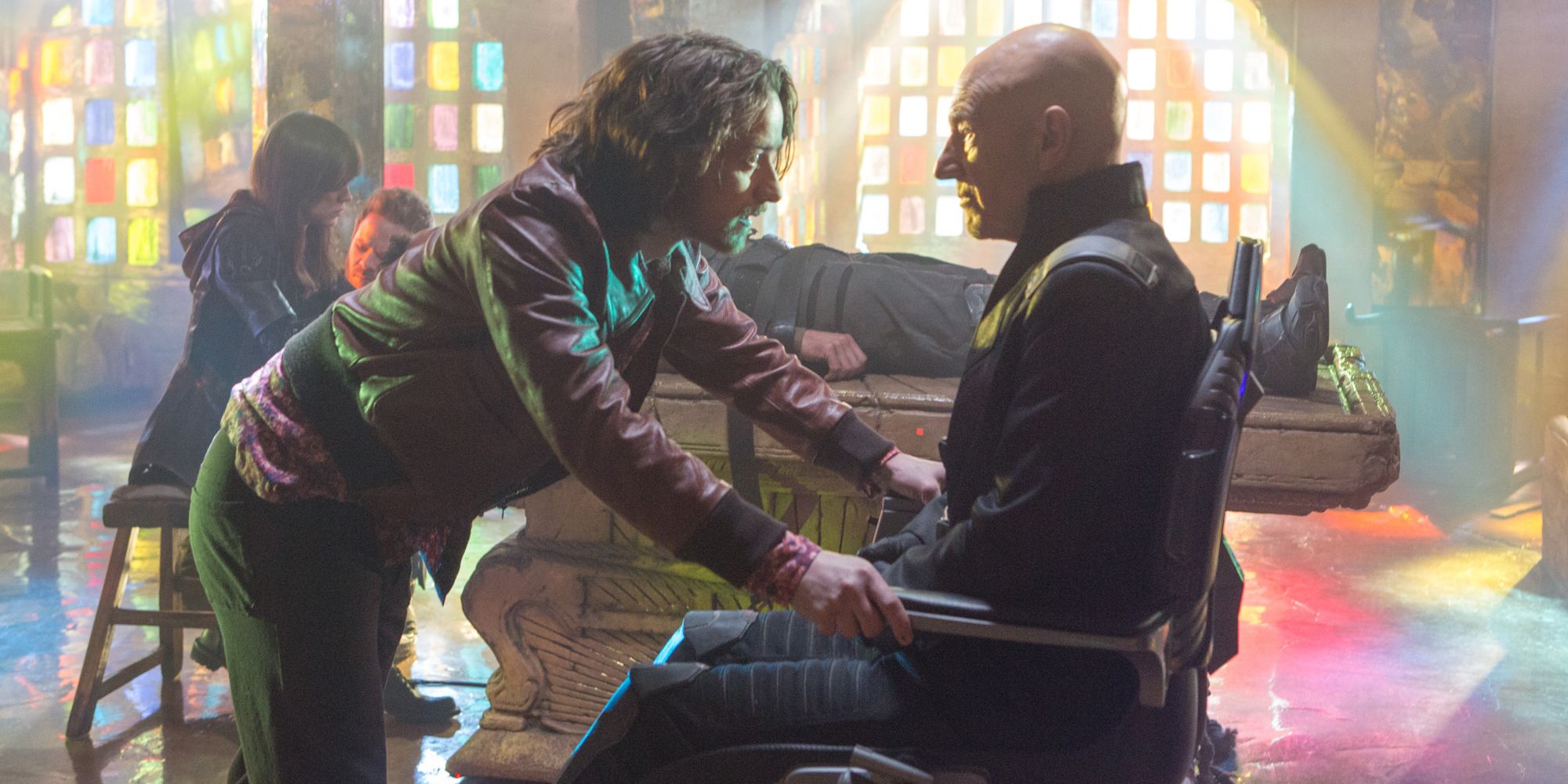The Big Picture
-
X-Men: Days of Future Past
is the best of the X-Men franchise, combining the best elements from the comics and films into a pulse-pounding adventure. - The movie hinges on the X-Men’s hope for a better future, bringing together old and new characters in a compelling narrative.
- The film successfully adapts the classic Marvel comic story while introducing new elements, humor, and character dynamics, making it the perfect X-Men story.
These days, longtime X-Men fans have been blessed with a renaissance of new material that has triumphantly brought Marvel Comics’ premiere superhero team back into the spotlight. With the animated revival series X-Men ’97 and the upcoming Deadpool & Wolverine—which will officially insert both titular characters into the Marvel Cinematic Universe—there’s a lot to be excited about if you’re a fan of these mutant heroes. But a decade ago, one blockbuster best honored the original comic book characters in a feature that took the best elements from both the film series and the comic books and mashed them together for a new, pulse-pounding adventure. Yes, we’re talking about X-Men: Days of Future Past, which is unashamedly the best of the X-Men franchise to date.
‘X-Men: Days of Future Past’ Expertly Adapts One of the Best Marvel Comics
If you were to poll a group of long-time comic book fans as to which X-Men stories they’d recommend, more than likely everyone would mention “Days of Future Past.” This Marvel classic, penned by comic legends Chris Claremont and John Byrne, appeared in the pages of Uncanny X-Men in 1981, quickly becoming a hit with readers. The story itself goes something like this: escaping from a dark future threatened by a nuclear holocaust by projecting her consciousness back into her younger body, the future Kitty Pryde returns to the present to warn the X-Men of the horrors to come—and stop the assassination of Senator Robert Kelly (and Professor Xavier). Though the X-Men prevent the assassinations and stop Mystique’s Brotherhood of Evil Mutants, they’re left wondering if this dark future was fully prevented at all. If you haven’t read this one before, this is your cue to travel back to a simpler era of Marvel Comics.
This heroic tale has been adapted into animation, revisited in comic sequels, and even influenced X-Men-centric video games, but it was best adapted here for the big screen. Days of Future Past gives X-Men fans just about everything we could ask for from an X-Men movie. We finally get to see the mutant heroes in mortal combat with Sentinels, witness many of the X-Men (some of whom we’re meeting for the first time) at their peak, and reunite nearly the entire original trilogy cast for the first (and last) time in almost a decade. But that’s not all. After the success of the standalone prequel X-Men: First Class, we grew attached to the younger iterations of Charles Xavier (James McAvoy) and Erik Lehnsherr (Michael Fassbender), who happen to be the stars of the show despite all the other X-Men wandering about.
The 2014 film—and its superior extended edition, dubbed The Rogue Cut—masterfully captures the spirit of the original Marvel material while translating it within the context of the live-action films that came before. The entire X-Men franchise is at stake here, and this compelling take on these outcast heroes engulfed in a wretched future makes this a finale well worth celebrating. Maybe it’s the way the film pivots between the future and the past, or maybe the fact that we’ve been reintroduced to our favorite X-Men under threat of immediately losing them again, but there’s nothing in Days of Future Past that feels out of place or unfocused despite the shifts in time and place. The whole time-travel narrative feels ripped directly from a Marvel comic book long before Avengers: Endgame had the guts to pull its own “time heist” in 2019.
Both the Film and the Comic Hinge on the X-Men’s Hope for a Better Future
Unsurprisingly, the movie changes quite a few plot points from the source material. Given the inconsistent nature of Fox’s X-Men films, this was inevitable. For one thing, Kitty (Elliot Page) sends Wolverine (Hugh Jackman) back in time to his younger bone-clawed body rather than Kitty going herself. The film gives her a sort of “time-phasing” ability to explain how this can happen. Additionally, the Sentinels here are much more powerful than in the comics, and rather than assassinating Senator Kelly (played by Bruce Davidson in the first X-Men movie), Jennifer Lawrence‘s Mystique aims to kill Bolivar Trask (Peter Dinklage), the man responsible for creating the Sentinels in the first place. Of course, the X-Men roster is also a bit different too, but that’s always been the case in the X-Men movies. Despite these changes, X-Men: Days of Future Past hinges on the one thing that ties the original comic and the film seamlessly together: hope.
Whenever we mix the word “hope” with superheroes, it’s easy to picture Superman or Spider-Man or some other tried-and-true symbol of comic book idealism that stands tall in the face of all evil, and rightfully so. The X-Men aren’t usually our go-to band of hopeful heroes, and yet, that’s exactly what Charles Xavier’s dream has always been about. It’s hope that compels the older Professor X (Patrick Stewart) and Magneto (Ian McKellen) to re-unite and convince their younger selves to settle their differences in the past. It’s hope that helps Wolverine encourage a young Charles to revisit his telepathic abilities. It’s hope that changes Mystique’s mind as she stands up for humanity in the wake of Magneto’s war on humans. And it’s hope that we’re ultimately left with when Logan wakes up in a new future where all his old friends—including the should-be-deceased Jean Grey (Famke Janssen) and Cyclops/Scott Summers (James Marsden)—have been restored, as if X-Men: The Last Stand and the years between never happened.
In contrast to the younger Magneto’s actions at the end of the film, hope is why the X-Men continue to fight for a better future. It’s the very reason that a better future is realized in the end. The moment Logan is thrown off the chess board in the final act puts the fate of the world in the hands of Charles, Erik, Mystique, and Beast (Nicholas Hoult), and we’re not sure whether they’re quite up to the task. However, like the comic book X-Men who manage to get the job done, this band of misfits does the same. Days of Future Past reminds us that the small steps in the past will always lead to climactic results later, either for good or for evil. Our heroes in the future race against the clock while those in the past settle in for the long game where they’re left wondering for decades if they ultimately succeeded or not. The fruits of their labor will take time to grow, but the seeds are thoroughly planted here. Thankfully, Charles lives to see it through to the end.
‘X-Men: Days of Future Past’ Thrives by Combining the Old With the New
The “magnum opus” of the X-Men film series, Days of Future Past masterfully combines the old and the new. In some ways, the film acts as a revival production not unlike what X-Men ’97 is to the original X-Men: The Animated Series. It reunites Hugh Jackman’s Wolverine (a delight as always) with the rest of his usual castmates from the X-Men trilogy and gives them such a gripping sendoff that, although we don’t need it, leaves us ravenous for more. (If only we’d got one more adventure with that original cast). Seeing the Xavier School for Gifted Youngsters back in business was something that we didn’t know we needed to see after the travesty that was The Last Stand, and, thankfully, Days of Future Past literally overwrites those pesky memories.
Screenwriter Simon Kinberg weaves in threads from X-Men: First Class while simultaneously prepping for the future of the continuing prequel series. While both sequels would fail to recapture this X-Men magic, Days of Future Past still works as a reboot in the best of ways—one not afraid to let go of the past while still honoring it. When the younger Charles and Erik appeared in First Class, it was easy to see how they might one day become the Professor X and Magneto we first met in X-Men, but Days of FuturePast forces these versions to confront their sins and choose forever the paths that were destined for them. Charles convinces his younger self to resume his mission, and in effect revises his own future in an almost Back to the Future-like fashion, thus escaping the Terminator-inspired fate they may have suffered.
On the contrary, Erik, ever the rebel, chooses his own path in spite of his future self. He does here what Magneto always does in the end, choosing violent means and ends in the face of controversy. It’s no wonder the older Magneto isn’t seen when Logan awakes in the revised 2023. While we shouldn’t expect anything different from these characters, it’s precisely because they stick to the script that the stakes feel real. Yes, Charles and Erik end their relationship in very much the same place they did in First Class, but that’s where these two always fall. They’ve always walked separate paths, and Days of Future Past best emphasizes their respective sides on the chess board.
This ‘X-Men’ Reunion Ends With Hope For The Future (and We May Just Get More)
With how X-Men: Apocalypse and Dark Phoenix turned out, it’s almost a shame that the theatrical X-Men timeline didn’t officially end here. Barring Logan, which faithfully wraps up Wolverine’s story, Days of Future Past is the perfect X-Men story. It’s dramatic, well-paced, and handles all of its moving parts with an ease and maturity that would make any MCU film jealous. Given how bizarre the uncanny mutant group’s adventures often get in the comics, the superhero epic does a grand job of adapting both the world-ending and the introspective to the screen. Every character has something to lose here, and, as usual, X-Men stories are at their best when there’s a deeply personal wound driving our hero’s (and our villain’s) controversial choices. Usually, that falls on Wolverine, but others get their fair share here too.
That’s not to say this is all doom and gloom. Evan Peter‘s Quicksilver brings some much-needed humor and charisma to this picture, with an immaculate super-speed sequence that future installments could never quite replicate. The return of Anna Paquin‘s Rogue is also a treat, and Iceman’s (Shawn Ashmore) side-quest to rescue her is something the theatrical version should never have left out. There are other inside jokes, nods to the source material, and small touches that only make X-Men: Days of Future Past better. We can’t wait to see the premiere mutant heroes make their way into the MCU, but until then, this decade-old X-Men legacy picture is the absolute best we could ask for.
X-Men: Days of Future Past is available to stream on Max in the U.S.



